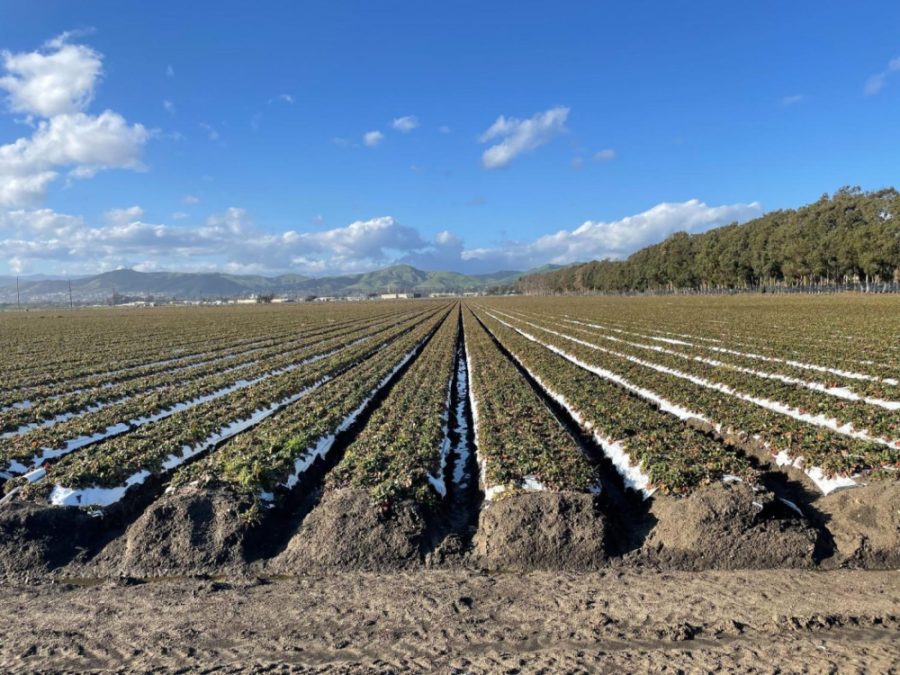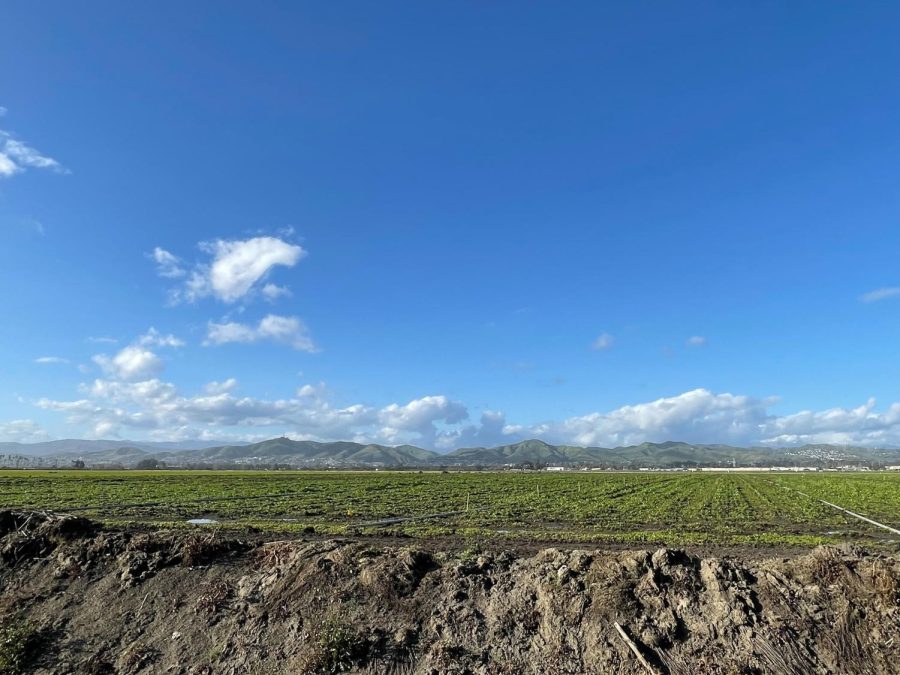Op-Ed: Groundwater scarcity threatens Ventura County agriculture
Off of Olivas Park Drive lies vast strawberry fields. According to the 2021 Ventura County crop report, strawberries were the number one leading crop, bringing in a total of 712,022,000 dollars
April 25, 2023

The effects of climate change in Ventura County are threatening a precious local resource: groundwater. About 68 percent of total groundwater used in the county goes to agriculture, an integral aspect of the county’s culture and economy. On top of the overpumping of aquifers, results of climate change such as rising temperatures and sea levels have caused major pollution and depletion of groundwater. This environmental disaster has widespread consequences for local residents and worldwide consumers alike.
Ten of Ventura County’s groundwater basins are reported to be medium to high utilization priority, and three of these are deemed critically overdrafted by the California Department of Water Resources (DWR). One of these critically overdrafted basins is the deep Oxnard Subbasin that has complex layers of clay between its five underground aquifers. This alone makes the process of groundwater recharge difficult, which is worsened by rising temperatures and sea levels.
Warming 4.75 degrees fahrenheit since 1895, Ventura County’s temperature increase has exceeded that of Santa Barbara and Los Angeles County by half a degree. This warmer climate has caused a periodic drought since 2012, due to a lack of rainfall and increased evaporation rates. Groundwater is replenished by precipitation; therefore, years of abnormally dry conditions have caused groundwater levels to diminish.
So far in 2023, average precipitation marks have been exceeded and the drought has temporarily subsided. Shallow basins along the Ventura and Santa Clara River Valleys have been replenished to an extent, but deep basins — specifically those in the Oxnard Subplain — have not seen improvement due to layers of clay that are obstructive for percolation. Kim Loeb, the Groundwater Manager at Ventura County Watershed Protection District and Fox Canyon Groundwater Management Agency, states, “Isotopic testing of groundwater in the northern portion of the Las Posas Valley Basin indicates that it may take 100 years or more for water to percolate through the extensive silt and clay deposits to reach the underlying deep aquifers.”
To make matters worse, aquifers near the ocean in the Oxnard Subbasin have begun to experience saltwater intrusion, another issue caused by overpumping. When groundwater stores drop below sea level, ocean water is sucked into the aquifer, polluting the freshwater and making it unsuitable for agricultural use. With rising sea levels caused by global warming, this issue will be exacerbated, further promoting freshwater deficits.
The effects of groundwater depletion will be felt far and wide, as Ventura County farmers export their produce to Canada, Europe and China. According to Ventura County’s 2021 Crop and Livestock Report, 31,000 jobs are dependent on farming, and the gross value of all crops grown was two billion dollars in 2021.
While one rainy season alone cannot improve the critical state of these basins, the implementation of water conservation techniques on local farmland is a realistic solution. Grants like The Healthy Soils Program give farmers across California funding for the installation of water conservation technology. As countless families in Ventura County depend on the agriculture industry for economic stability, conserving water to ensure the longevity of these practices is essential to the health and well-being of local residents, as well as the planet.
This article was submitted for a Cal Matters Earth Day Op-Ed competition and is currently published in the Ventura County Star.
















